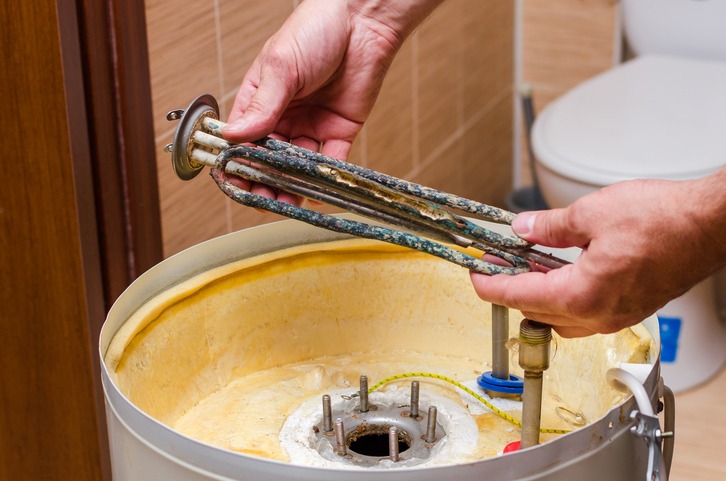Boilers are essential for providing heat and hot water in homes, commercial buildings, and industrial facilities. However, like any mechanical system, boilers can experience failures and malfunctions over time. Understanding the common causes of boiler failures is crucial for maintaining efficiency, safety, and reliability. By exploring the various factors that can lead to boiler problems and the importance of regular maintenance, you can better understand the essential role of boiler repair in ensuring uninterrupted heating and hot water supply.
Common Causes of Boiler Failures
Boiler failures can stem from various causes. Here are a few of the most common that will have homeowners reaching for the phone to contact a professional for boiler repair.
1 Cause: Mineral Buildup & Scaling
Over time, minerals and sediments in water can accumulate on the boiler’s heat exchanger, forming scale deposits. In turn, it reduces heat transfer efficiency and can lead to overheating.
How Can This Be Fixed?
Regular descaling and cleaning are essential to remove scale deposits and restore boiler efficiency.
2 Cause: Corrosion
Corrosion occurs when metal components of the boiler come into contact with oxygen and water, leading to rust and deterioration.
How Can This Be Fixed?
Proper water treatment, including corrosion inhibitors, can prevent corrosion. Damaged components should be replaced or repaired promptly.
3 Cause: Pressure Issues
Boiler pressure that is too high or too low can result in inefficient operation or safety hazards.
How Can This Be Fixed?
Boiler pressure should be regularly monitored and adjusted within the manufacturer’s recommended range. Faulty pressure relief valves must be replaced.
4 Cause: Thermocouple Failure
A malfunctioning thermocouple can result in the pilot light going out, causing the boiler to shut down.
How Can This Be Fixed?
Replacing the faulty thermocouple is a common and straightforward repair.
5 Cause: Ignition Problems
Faulty ignition systems can prevent the boiler from firing, leading to a lack of heat and hot water.
How Can This Be Fixed?
Ignition system components like spark electrodes and ignition control modules may need replacement.
6 Cause: Leaking or Dripping
Leaks in boiler components, such as pipes, valves, or the heat exchanger, can result in water loss and reduced efficiency.
How Can This Be Fixed?
Identifying and fixing the source of leaks is critical to prevent further damage and water wastage.
7 Cause: Kettling
Kettling occurs when hard water minerals accumulate in the boiler, leading to noises resembling a kettle boiling.
How Can This Be Fixed?
You can fix this by descaling the heat exchanger and installing a water softener to prevent kettling.
8 Cause: Pump Problems
Faulty or inefficient circulation pumps can hinder the flow of heated water through the system.
How Can This Be Fixed?
Replace malfunctioning pumps to ensure proper water circulation.
9 Cause: Faulty Thermostat
An inaccurate or malfunctioning thermostat can lead to inconsistent heating and energy waste.
How Can This Be Fixed?
Calibrate or replace the thermostat as needed to maintain accurate temperature control.
10 Cause: Safety Shutdowns
Boilers have safety mechanisms that shut them down in case of overpressure, overheating, or other critical issues.
How Can This Be Fixed?
Address the underlying problem that triggered the safety shutdown before restarting the boiler.
The Importance of Regular Maintenance
Preventive maintenance is the key to avoiding unexpected boiler failures and costly repairs. Regular servicing and inspections by qualified technicians can help identify and address potential issues before they escalate.
Here are some crucial maintenance tasks:
- Annual Inspections: Schedule yearly inspections by a licensed boiler technician to assess the overall condition of the boiler and its components.
- Cleaning & Descaling: Clean the boiler’s heat exchanger and remove scale deposits regularly to maintain efficiency.
- Water Treatment: Implement proper water treatment protocols, including chemical inhibitors, to prevent corrosion and scale buildup.
- Pressure Checks: Monitor and adjust boiler pressure within the recommended range to avoid pressure-related problems.
- Ignition System Testing: Test the ignition system to ensure reliable startup and flame stability.
- Leak Detection: Routinely inspect the boiler and its surroundings for any signs of leaks or dripping.
- Thermocouple & Safety Checks: Verify the functionality of the thermocouple and safety mechanisms to prevent shutdowns and interruptions.
- Pump Maintenance: Lubricate and maintain circulation pumps to ensure smooth water flow.
- Efficiency Monitoring: Monitor the boiler’s energy efficiency to detect any declines that may indicate underlying issues.
The Role of Boiler Repair: Why It Matters
Even with proper maintenance, boilers can still experience unexpected failures. When these failures occur, prompt boiler repair is essential to restore functionality and safety. Here’s why professional boiler repair is indispensable:
- Safety: Boiler malfunctions can pose safety risks, including the potential for gas leaks or overheating. Timely repairs mitigate these hazards.
- Efficiency: A malfunctioning boiler operates inefficiently, increasing energy consumption and utility bills. Repairs restore efficiency.
- Cost Savings: Addressing minor issues through repairs is often more cost-effective than allowing them to worsen, potentially requiring costly replacements.
- Minimized Downtime: Boiler repair services aim to reduce downtime by quickly diagnosing and fixing problems, ensuring uninterrupted heating and hot water supply.
- Compliance: Regular boiler repair and maintenance ensure compliance with safety and environmental regulations.
Understanding the common causes of boiler failures, implementing preventive maintenance measures, and promptly seeking professional boiler repair when needed are essential for ensuring boiler systems’ efficiency, safety, and reliability. By addressing issues proactively and prioritizing regular maintenance and inspections, property owners, facility managers, and homeowners can extend the lifespan of their boilers, minimize energy consumption, and prevent unexpected breakdowns. In doing so, they can enjoy consistent heating and hot water while reducing the likelihood of costly repairs or replacements.
